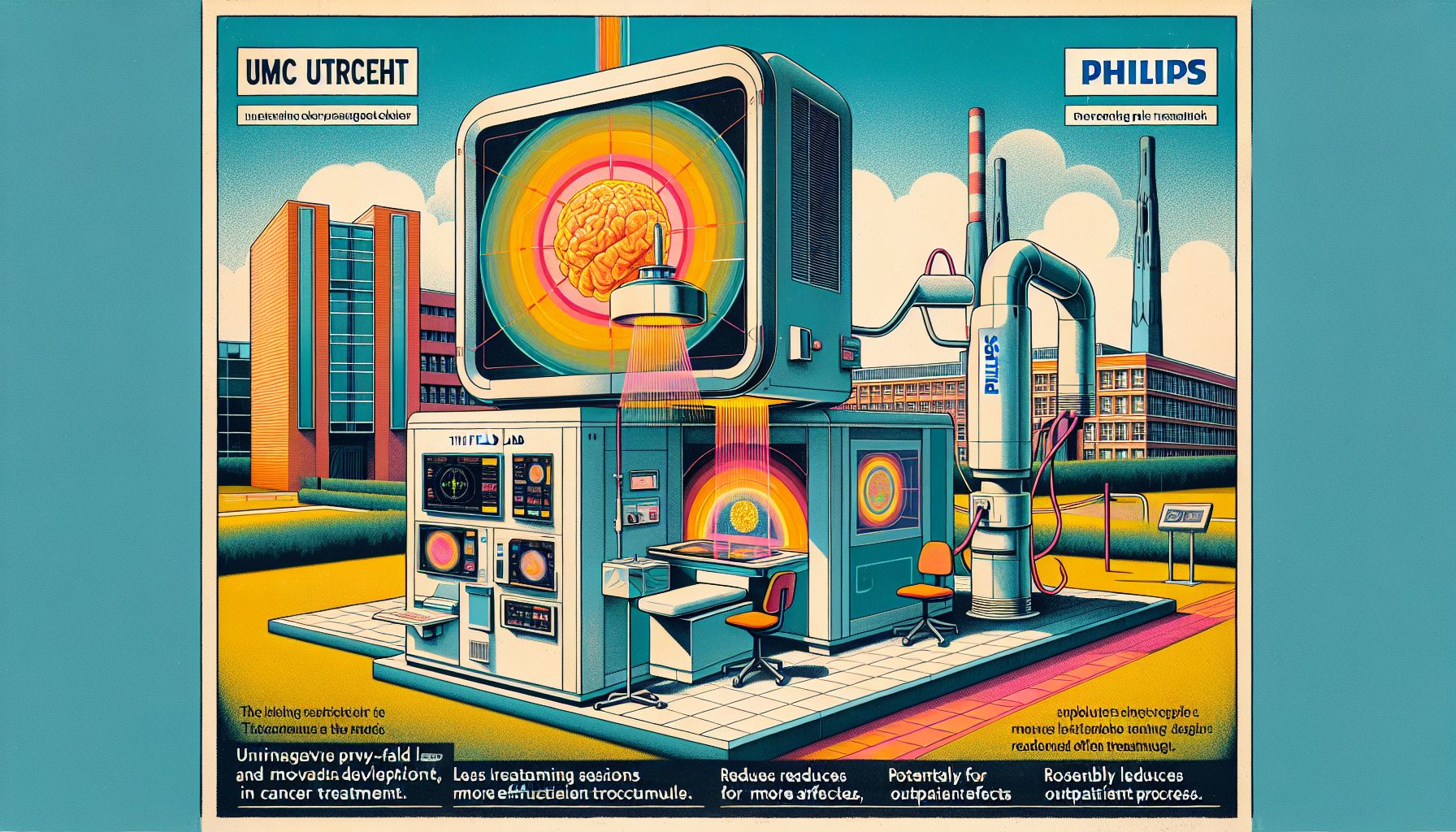UMC Utrecht and Philips Join Forces to Revolutionize Cancer Treatment

Utrecht, Wednesday, 3 July 2024.
UMC Utrecht and Philips are developing a new fieldlab to create less invasive and more efficient cancer treatments. Using advanced imaging technology and AI, they aim to reduce treatment sessions and side effects, potentially allowing for outpatient procedures and easing pressure on healthcare facilities.
A New Era in Cancer Treatment
The collaboration between UMC Utrecht and Philips marks a significant step forward in the field of healthtech. By leveraging cutting-edge imaging technology and artificial intelligence, this partnership aims to revolutionize the way cancer is treated. The new fieldlab focuses on developing image-guided treatments that are not only less invasive but also more efficient. This could dramatically reduce the number of treatment sessions required, as evidenced by their goal to cut prostate cancer radiation sessions from twenty to just two[1].
How It Works
The core of this innovation lies in the integration of AI and advanced imaging techniques. By analyzing vast amounts of patient data, AI can help create personalized treatment plans that are more precise and effective. This approach not only minimizes the invasiveness of procedures but also reduces the side effects, making treatments more patient-friendly. The fieldlab aims to utilize these technologies to perform certain cancer treatments on an outpatient basis, thereby reducing the burden on operating rooms and intensive care units[1].
Broader Applications
While the initial focus is on cancer treatment, the potential applications of these innovations are far-reaching. The image-guided techniques being developed could be applied to other medical fields such as cardiovascular and neurological conditions in the future[1]. This broad applicability underscores the transformative potential of the technologies being developed in the fieldlab.
Collaborative Efforts
The success of this initiative hinges on open innovation and collaboration. Multiple institutions and companies are involved in this partnership, including the Dutch Cancer Institute, Eindhoven University of Technology, and Elekta[1]. This collaborative approach accelerates the development and implementation of new technologies, ensuring that they reach patients more quickly and effectively.
The Role of AI and Data Analysis
Artificial Intelligence and data analysis play a pivotal role in this initiative. By processing large datasets from clinical studies, AI can identify patterns and insights that might be missed by human analysis. This capability enhances the precision of treatments and tailors them to individual patients, thereby improving outcomes and reducing the burden on healthcare staff[1].
Sustainability and Patient-Centric Care
One of the primary goals of the fieldlab is to make healthcare more sustainable and patient-centric. By reducing the number of invasive procedures and minimizing side effects, the new technologies aim to improve the quality of life for patients. Additionally, the shift towards outpatient treatments can significantly ease the strain on healthcare facilities, making the entire system more sustainable in the long run[1].
Conclusion
The partnership between UMC Utrecht and Philips exemplifies the potential of combining expertise and innovative technologies to advance healthcare. By focusing on less invasive and more efficient treatments, they are setting the stage for a new era in cancer care and beyond. This collaboration not only aims to improve patient outcomes but also to create a more sustainable and efficient healthcare system.

